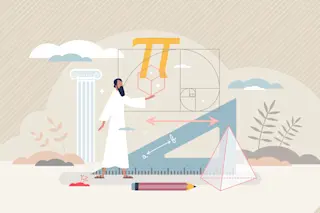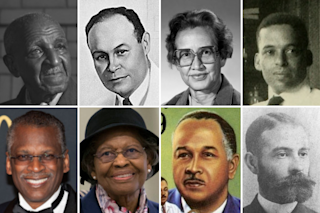Adults and school-age children may understand some basic principles of geometry even without formal math training at all, according to a study published online yesterday by the Proceedings of the National Academy of Sciences. Thirty members of the Mundurucú, an indigenous Amazonian group, could intuitively grasp geometric concepts about angles, lines, and points, the researchers found. How the Heck:
What's the News:
The researchers asked eight Mundurucú children ages 7 to 13 and twenty-two Mundurucú adults to answer 21 questions about the geometry of a plane or a sphere, such as “Can a line be made to cross two other parallel-looking lines?” They also had the participants estimate angles that would complete an unfinished triangle, using their hands or a measuring tool.
The Mundurucú children and adults performed far better than would be expected by chance, if they were randomly answering "yes" or "no" to the questions. They answered 90% ...













